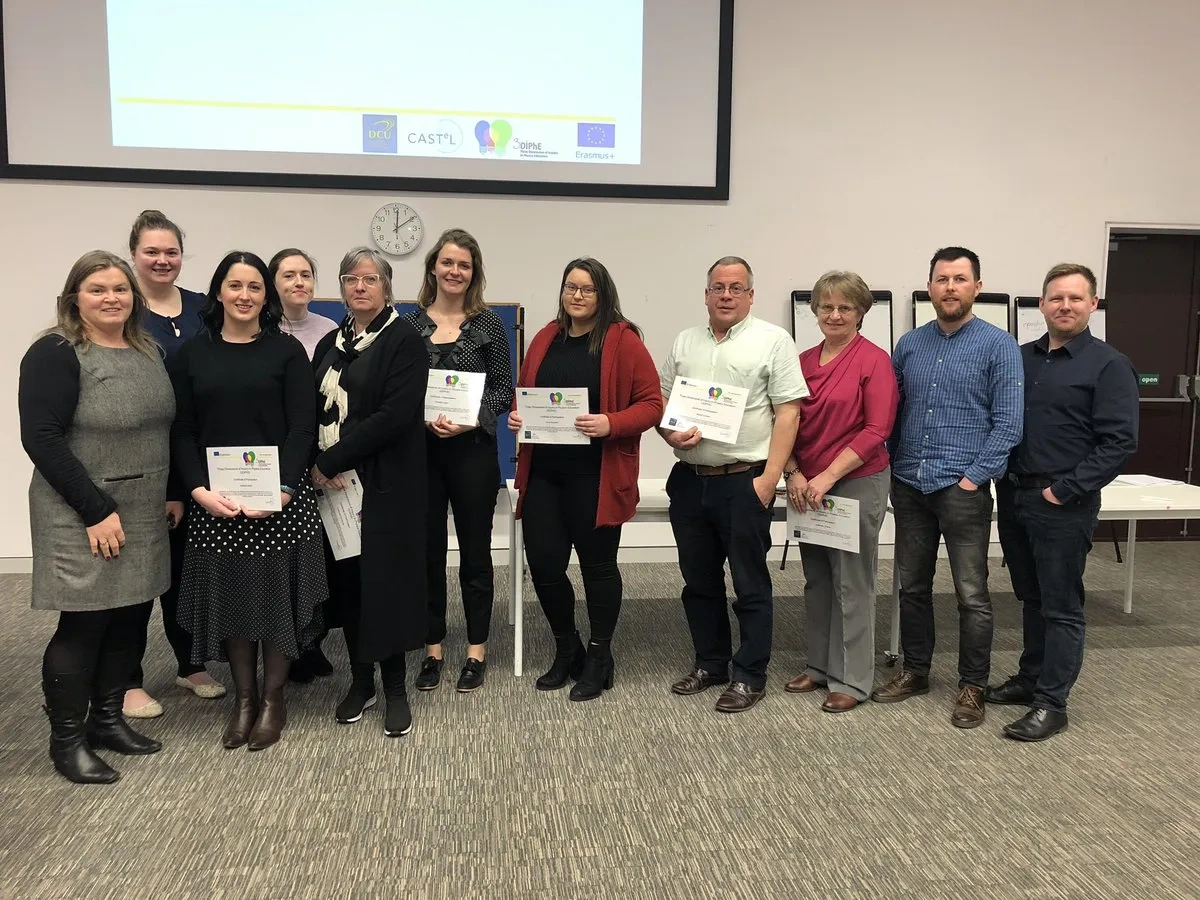

Teachers showcase their practitioner inquiries as part of E+ Project 3DIPhE
The first showcase of the Three Dimensions of Inquiry in Physics Education project has held in DCU St. Patrick's Campus on Saturday 9th of March. Eight participating Irish science teachers presented their own practitioner inquiries conducted as part of their first iteration of the project..
Four Irish teachers showcased their practitioner inquiries on a range of topics:
- How can I develop co-operative learning in my 5th Year Ordinary Level Class?
- How can self-correcting from guided solutions on Schoology increase students’ application of formulae in calculations?
- What is the most effective type of homework to set for LC Physics students to consolidate learning and what frequency is best for maintaining standards?
- What are effective Self- Reflection Strategies in First Year Students to Enable Students to Become More Independent Learners?
Four Irish teachers showcased their practitioner inquiries as coaches on a range of topics:
- Fostering professional learning communities to support the teaching and learning of physics at lower secondary level.
- Reflective learning 0 transitioning from the role of student to the role of teacher.
- Is mindset orientation a malleable trait?
- How do digital collaboration tools allow professional learning communities to be effective?
3DIPhE – Three Dimensions of Inquiry in Physics Education is an ERASMUS+ project is focused on different levels of inquiry relevant for physics education and is led in Ireland by CASTeL researchers Dr. James Lovatt, Dr. Paul Grimes and Dr. Eilish McLoughlin. The projects has three levels of inquiry a) Inquiry based learning for pupils; b) Practitioners’ inquiry for teachers; c) Inquiry of coaching for partners and uses an educational designed research approach. The goals of the project are to establish professional learning groups (PLC) of teachers practitioners and train them to inquire their own practice of inquiry based learning (IBL). In regular PLCs’ meetings, we will discuss the inquiry problems, modes of inquiry, methods, evidence, and conclusions. We will reflect on improvement of the IBL in classroom. PLCs from different countries will exchange their experience, discuss their problems and reflect on methods, evidence etc. Results of these process will be presented at national and international events. Good examples of IBL praxis will be presented in a written, publicly available form. Based on the experience we will develop a course on practitioner inquiry. Based on the experience we will develop a course on coaching PLCs. Regular accompaniment and inquiry of all processes within the project will result in an extensive educational design research study.
